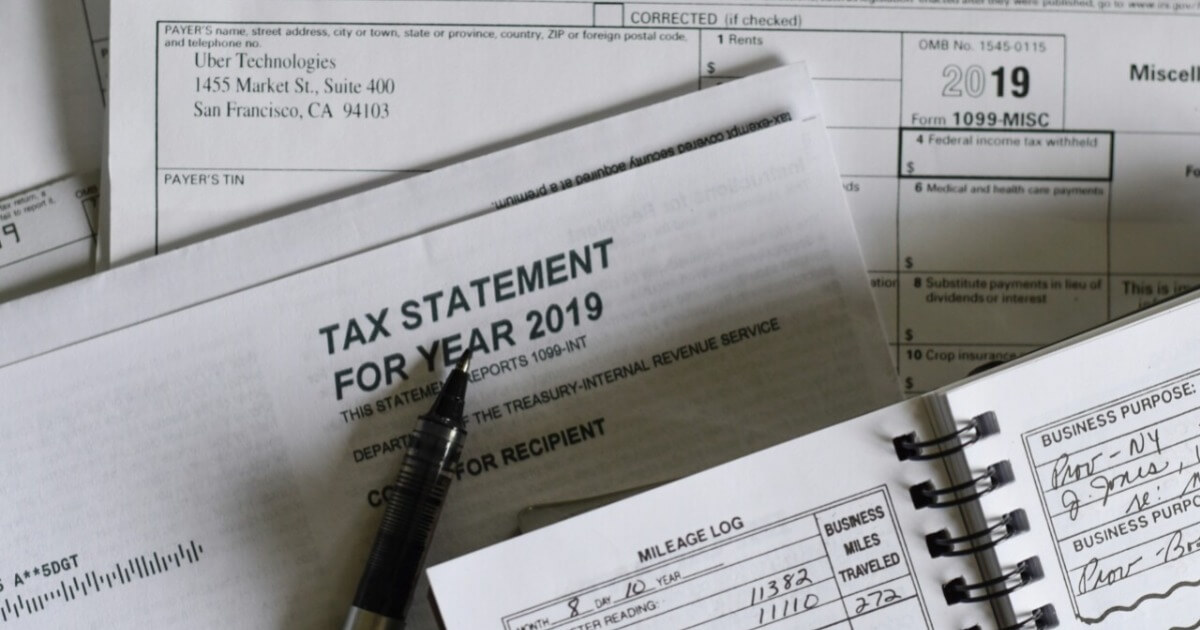As an entrepreneur or business owner in Portugal, understanding the intricacies of the country’s tax system is crucial for maximizing your profits. Portugal is known for its business-friendly environment, but navigating the complexities of company tax can be challenging without the proper knowledge and guidance. This comprehensive guide will explore the various aspects of company tax in Portugal and provide expert tips on optimizing your tax strategy.
Understanding the Portuguese Tax System
Before delving into the specifics of company tax in Portugal, it is essential to have a basic understanding of the country’s tax system. Portugal operates on a self-assessment tax regime, which means businesses are responsible for determining their taxable income and calculating the corresponding tax liability. The tax year in Portugal runs from January 1st to December 31st, and tax returns must be filed by March 31st of the following year.
The Portuguese tax system is based on a progressive tax rate structure, where higher income levels are subject to higher tax rates. Portugal’s corporate income tax rate is currently set at 21%, and businesses may be subject to additional local taxes. It is essential to stay updated on any changes to the tax laws and rates to ensure compliance and optimize your tax planning.
Types of Business Taxes in Portugal
Depending on their legal structure and activities, businesses may be subject to various taxes in Portugal. The main types of business taxes in Portugal include:
- Corporate Income Tax (IRC): This tax levies on the profits of companies and other legal entities operating in Portugal. The current corporate income tax rate is 21%. Notwithstanding this, Madeira offers a much lower tax rate.
- Value Added Tax (VAT): VAT is a consumption tax levied on selling goods and services. The standard VAT rate in Portugal is 23%, but there are 6% and 13% reduced rates for certain goods and services.
- Social Security Contributions: Businesses in Portugal must contribute to the social security system on behalf of their employees. The contribution rates vary depending on the employee’s salary and other factors.
- Municipal Property Tax (IMI): IMI is a tax on real estate properties owned by businesses. The local municipality determines the tax rate, which can vary.
Understanding the different types of business taxes in Portugal is essential for accurate tax planning and compliance.
Critical Considerations for Businesses Operating in Portugal
Operating a business in Portugal comes with its own set of unique considerations when it comes to taxes. Here are some key factors to keep in mind:
- Legal Structure: The legal structure of your business will determine how you are taxed in Portugal. Understanding each structure’s tax implications is essential whether you operate as a sole proprietorship, partnership, or limited liability company.
- Double Taxation Treaties: Portugal has entered into double taxation treaties with many countries to prevent the same income from being taxed twice. Familiarize yourself with the relevant treaties to ensure you are not paying more tax than necessary.
- Transfer Pricing: If your business engages in transactions with related parties, such as subsidiaries or affiliates, it is crucial to comply with transfer pricing regulations. These regulations ensure that transactions between related parties are conducted at arm’s length and reflect fair market value.
- Madeira International Business Center: Madeira offers a special tax regime for international service providers, which can benefit corporations who become tax residents in Madeira. Madeira is ideal for businesses looking to establish themselves in a tax-efficient jurisdiction.
Considering these key factors, you can make informed decisions to minimize your tax burden and maximize your profits in Portugal.
Tax Planning Strategies for Maximizing Profits in Portugal
Effective tax planning is essential for maximizing your business profits in Portugal. Here are some strategies to consider:
- Optimal Business Structure: Choosing your business’s legal structure can significantly impact your tax liability. Consult with a tax advisor to determine the most tax-efficient structure for your circumstances.
- Expense Deductions: Use all applicable expense deductions to reduce taxable income. Keep detailed records of all business expenses and consult with a tax professional to ensure compliance with the tax regulations.
- Research and Development Incentives: Portugal offers various incentives for businesses engaged in research and development activities. These incentives include tax credits, grants, and deductions. Explore these opportunities to lower your tax liability and invest in innovation.
- International Tax Planning: If your business operates internationally, proper international tax planning can help minimize your overall tax burden. Consider structuring your global operations tax-efficiently to take advantage of favourable jurisdictions and tax treaties.
By implementing these tax planning strategies, you can optimize your tax position and increase your profitability in Portugal.
Deductions and Incentives for Businesses in Portugal
Portugal offers a range of deductions and incentives for businesses to promote economic growth and attract investment. These deductions and incentives can help reduce tax liability and stimulate business activity. Some standard deductions and incentives include:
- Investment Incentives: Portugal provides various incentives to encourage investment in specific regions or industries. These incentives may include tax credits, grants, and exemptions.
- Startup Incentives: If you are starting a new business in Portugal, you may be eligible for special incentives targeted at startups. These incentives can include tax breaks, grants, and access to financing.
- Innovation Deductions: Businesses engaged in innovative activities like research and development can benefit from deductions designed to promote innovation and technological advancement.
- Employment Incentives: Portugal offers incentives to businesses that create jobs and hire specific categories of employees. These incentives can include reduced social security contributions or tax credits for hiring and training employees.
Exploring and taking advantage of these deductions and incentives is vital to optimize your tax position and increase your profits in Portugal.
Compliance and Reporting Requirements for Business Taxes in Portugal
Compliance with tax regulations is crucial to avoid penalties and maintain good standing with the Portuguese tax authorities. Here are some vital compliance and reporting requirements to be aware of:
- Tax Registration: Businesses operating in Portugal must register with the tax authorities and obtain a taxpayer identification number (NIF). This number is used for all tax-related matters and must be included on all invoices and other relevant documents.
- Accounting Records: Businesses must maintain and retain accurate accounting records for at least ten years. These records must comply with Portuguese accounting standards and be available for inspection by the tax authorities.
- Tax Returns: Businesses in Portugal must file annual tax returns, reporting their income, expenses, and tax liability. The deadline for filing tax returns is March 31st of the following year.
- VAT Reporting: Depending on your business activity and turnover, you must submit regular VAT returns, reporting your taxable transactions and the corresponding VAT liability. The frequency of VAT returns varies.
It is essential to stay current with the latest compliance requirements and ensure you meet all reporting deadlines to avoid penalties and maintain a good relationship with the tax authorities.
Working with a Tax Advisor in Portugal
Given the complexities of the Portuguese tax system, working with a tax advisor can be highly beneficial for your business. A knowledgeable and experienced tax advisor can help you navigate the intricacies of company tax in Portugal, identify tax planning opportunities, and ensure compliance with the tax regulations.
When selecting a tax advisor, consider their expertise in Portuguese tax law, their track record of working with businesses in your industry, and their ability to provide customized advice based on your specific needs and goals. A good tax advisor will help you optimize your tax strategy and provide valuable insights and guidance to support your business growth.
Common Challenges and Pitfalls in Navigating Company Tax in Portugal
Navigating company tax in Portugal can be challenging, especially for foreign entrepreneurs or businesses unfamiliar with the local tax regulations. Some common challenges and pitfalls to watch out for include:
- Language Barrier: The Portuguese tax system is primarily in Portuguese, which can be challenging if you are not fluent. Working with a tax advisor proficient in Portuguese and English can help overcome this barrier.
- Changing Regulations: Tax laws and regulations in Portugal are subject to change, and keeping up with the latest updates can be challenging. Partnering with a tax advisor who stays informed about changes in the tax landscape can help you remain compliant and take advantage of new opportunities.
- Administrative Burden: The administrative burden of tax compliance can be overwhelming, particularly for small businesses or startups with limited resources. Outsourcing your tax and accounting functions to a professional service provider can help alleviate this burden and ensure accurate reporting.
- Lack of Local Knowledge: Understanding the intricacies of the Portuguese tax system requires in-depth knowledge of local regulations, practices, and customs. Working with a tax advisor well-versed in the Portuguese business environment can help you avoid costly mistakes and easily navigate the complexities.
By being aware of these challenges and pitfalls, you can proactively address them and ensure that your company tax strategy in Portugal is effective and compliant.
Conclusion: Takeaways for Maximizing Profits in Portugal
Maximizing your business profits in Portugal requires a comprehensive understanding of the country’s tax system and strategic tax planning. By familiarizing yourself with the different types of business taxes, critical considerations for operating in Portugal, and tax planning strategies, you can optimize your tax position and increase your profitability.
Working with a tax advisor and taking advantage of deductions, incentives, and compliance requirements will further enhance your tax strategy. Despite the challenges and complexities, with the proper knowledge and guidance, you can successfully navigate the company tax landscape in Portugal and achieve your financial goals.
Remember, tax planning is an ongoing process, and staying informed about tax laws and regulations changes is essential. By regularly reviewing and adjusting your tax strategy, you can adapt to the evolving business environment and continue to maximize your profits in Portugal.
Disclaimer: The information provided in this article is for informational purposes only and should not be construed as legal, financial, or investment advice. Please consult with professionals specializing in Portuguese tax law before making business decisions.

Miguel Pinto-Correia holds a Master Degree in International Economics and European Studies from ISEG – Lisbon School of Economics & Management and a Bachelor Degree in Economics from Nova School of Business and Economics. He is a permanent member of the Order of the Economists (Ordem dos Economistas)… Read more




